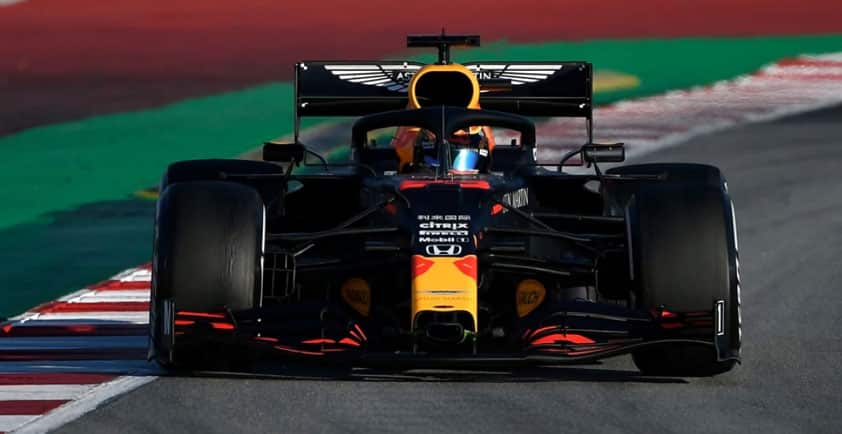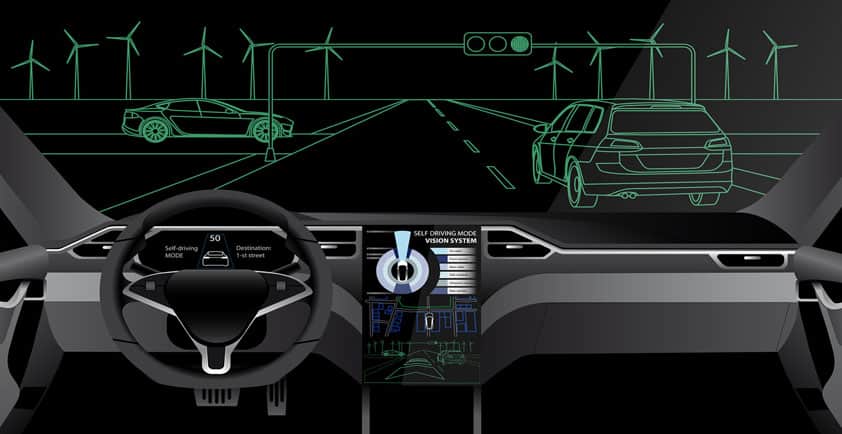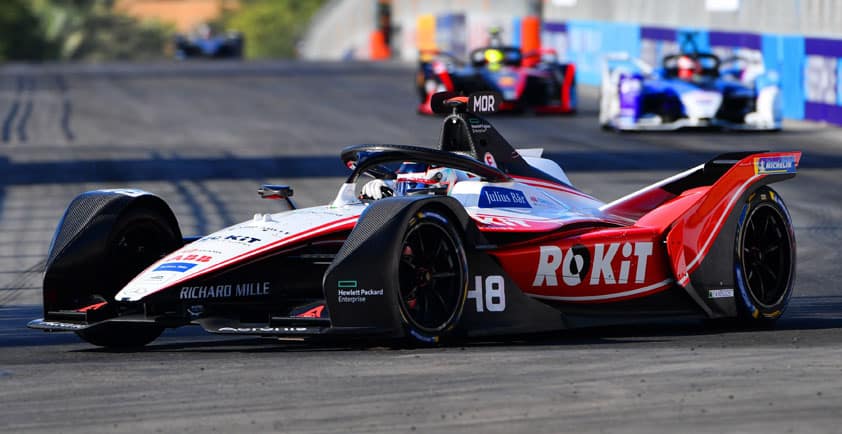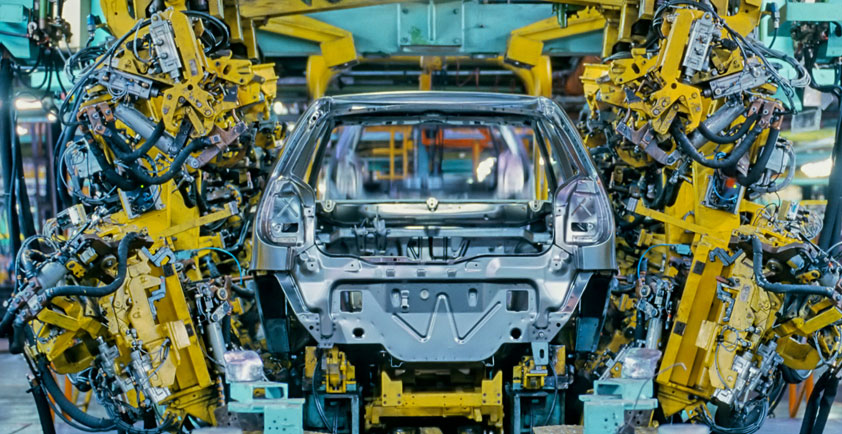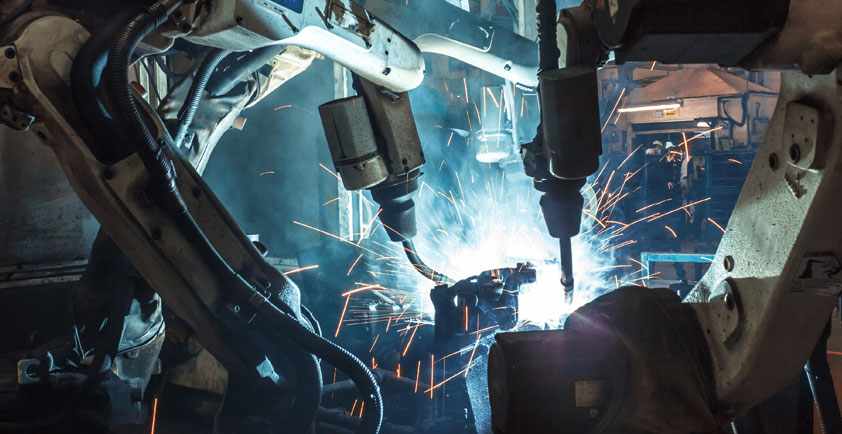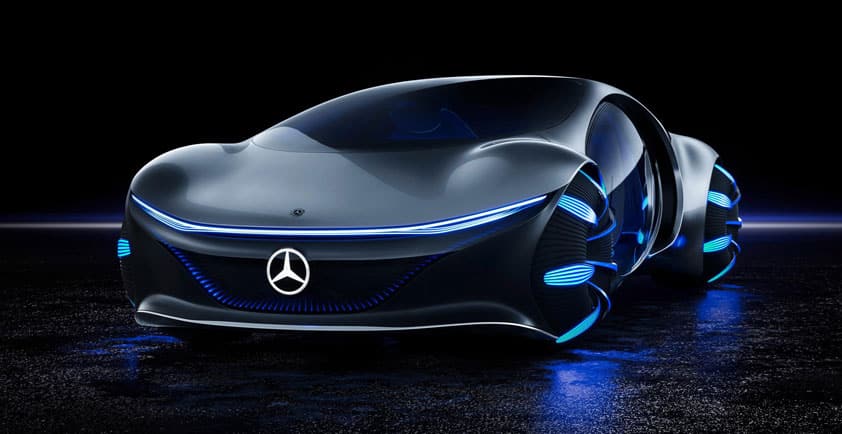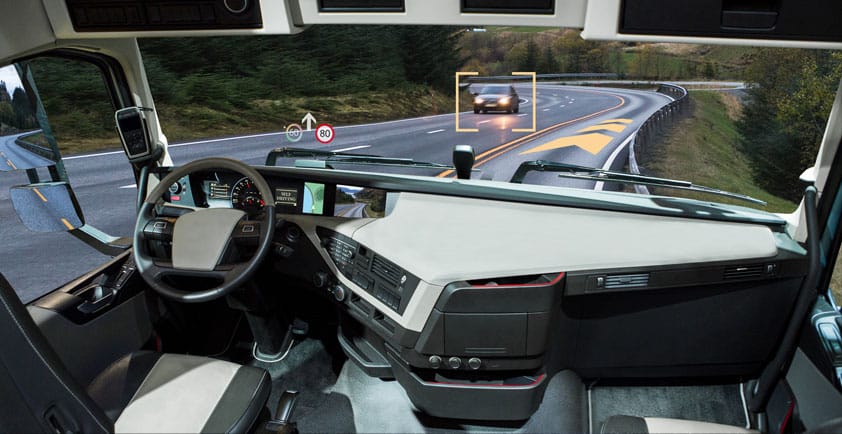
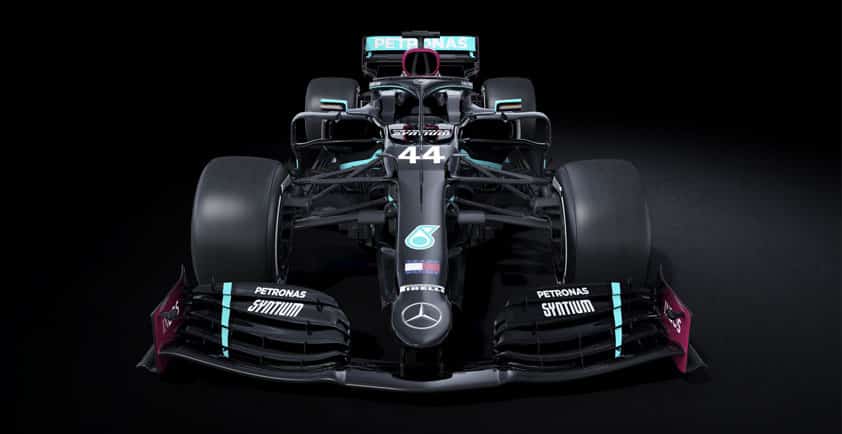
BIG DATA AT HIGH SPEED
Tune in to a Formula One Grand Prix race some upcoming Sunday, and chances are you’ll see the Mercedes-AMG Petronas Motorsport team battling for a spot on the winner’s podium. The team has achieved consecutive Drivers’ and Constructors’ Championships from 2014 to 2018, and driver Lewis Hamilton is considered one of the best in the history of the sport. Take a closer look and you’ll see that HPE has joined the team to help pair its high-performance race cars with advanced IT engineering. In a sport where split seconds make the difference, HPE technologies and HPE Pointnext help this F1TM team gain new technology advantages to power its drivers around the track.
F1 RACING: A BIG DATA SPORT
Finding advantages in the limitations
To the uninitiated, Formula One racing—with its iconic, low-profile cars, twisting tracks, and celebrity drivers—might seem like a contest decided by sheer speed. Design the fastest car, pair it with the least fearless driver, and the race is won, right?
The reality is a bit different, however. The highest class of single seater auto racing sanctioned by the Federation Internationale de l’Automobile (FIA), Formula One is governed by a complex and detailed set of technical regulations that define everything from race procedures to car engineering and capabilities—from chassis size, to the types of materials that can be used to build components, to how fast an engine’s crankshaft can revolve (there’s a limit of 18,000 RPMs).
Formula One technical regulations are critical for many reasons. They protect driver safety. They stop teams from adopting engineering innovations that would, over time, radically change the sport. They also foster a transparency that’s needed to keep the competition fair.
The technical regulations have another interesting effect: they focus Formula One teams’ attention. Teams know exactly what elements they can modify to gain a competitive edge—and they invest heavily in understanding how to manipulate those elements.
Data analytics has therefore become a critical piece of the Formula One toolbox. Today’s teams use on-board sensors to capture data on every aspect of their cars’ performance. They use computational fluid dynamic (CFD) simulations to perfect car design. They gather and analyze on-track test data to inform racing strategies. They use data to help drivers make the smartest possible real-time race-day decisions.
BUSINESS CHALLENGE: THE ENGINE BEHIND THE HORSEPOWER
Winning requires sophisticated auto engineering and shrewd on- the-track strategy
Within the exacting constraints of the FIA technical regulations, Mercedes-AMG Petronas Motorsport strives relentlessly to gain the kind of split-second advantages that win Formula One races. One critical area is engineering: the team pushes continually to invent, test, and implement design innovations as quickly and cost-effectively as possible. Another is race-day strategy—the smart, often real-time decisions that can give drivers a winning edge.
Simulations are critically important to this effort. Mercedes-AMG Petronas Motorsport leverages computed fluid dynamics and data from wind tunnel tests to understand how designs impact drag and to correlate factors such as speed and track conditions. It generates and tests “digital twins” of its race cars and models of its car software. The faster it can iterate these models, the more quickly its designers can work, and the more creative they can become.
On the track, the team draws on its sophisticated insights to understand how weather, track conditions and surfacing, and other factors impact car performance. Because conditions change constantly, the team must be prepared at all times to make real-time adjustments to its race-day strategy.
"We look to iterate across everything we do as a team, this is both on-car and off-car. HPE is helping us to do this across people, process and technology.” Matt Harris, Head of IT, Mercedes-AMG Petronas Motorsport
IT CHALLENGE: DATA TO FUEL THE RIGHT DECISIONS—AND FAST
From simulations to car design to trackside analytics, the team depends on data
For Mercedes-AMG Petronas Motorsport to win races, it must have the right IT. Prior to race events, for example, the team runs millions of simulations, generating up to 50TB of CFD data per week. The team needs high performance compute systems sized to accommodate its workloads.
Trackside, Mercedes-AMG Petronas Motorsport must capture, analyze, and visualize data from on-car sensors measuring everything from transmission fluid temperatures to tire pressure. Some 18K channels of data flow into the team’s servers on race days, and depending on the sensor and data requirements, samples might be gathered at the rate of 1000 times per second.
In the past, the team used a mix of hundreds of standard, off-the-shelf devices to ingest, analyze, and display this trackside data. Most of these devices were allocated to specific workloads (for example video streams, car sensor data, or strategy analytics) which made it challenging to present an integrated view of their health and performance. In addition, the systems weren’t designed for such intensive workloads. At times they would even start to overheat from the strain and environmental conditions.


SOLUTION RECIPE: TAILORED SOLUTION, BACKED BY TAILORED EXPERTISE
By partnering with HPE, Mercedes-AMG Petronas Motorsport gained the right combination of technology—plus the expert help it needs for IT integration, deployment, and support.
HPE Hardware: HPE Apollo 6500 Gen10 System - HPE Edgeline Converged Edge System - HPE ProLiant DL380 Servers - HPE Moonshot System
HPE Services: HPE Pointnext Advisory Services - Transformation Solution - Intelligent Edge
SOLUTION: FROM DATA CENTER TO TRACKSIDE, THE RIGHT SYSTEMS FOR THE JOB
Power for engineering, power for strategy
Mercedes-AMG Petronas Motorsport partnered with HPE to equip its engineers and strategists with state-of-the-art technology. Their first priority: racecar engineering. The team implemented an HPE Apollo 6500 platform to support modeling and simulations. Leveraging CPUs only available from HPE, the platform enabled the team to speed up workloads. Pre- event simulations that once took 3-4 days now complete in under 24 hours—allowing the team to run more simulations between races. Over time, Mercedes-AMG Petronas Motorsport will use these systems even more by leveraging machine learning in areas such as computer vision and complex computational analysis.
To support trackside computing in the pit, HPE Pointnext consolidated 16 devices and their workloads onto a single HPE Edgeline system. This platform now runs and displays an integrated view of critical information onto the team’s pit wall screens. The architecture reduced the team’s trackside IT footprint, helping to control transport costs.
HPE also upgraded the team’s other off-the-shelf servers with HPE DL380 ProLiant systems.
RESULTS - INNOVATION, STRATEGY, SPEED
This F1 powerhouse can now turn its attention to what really matters: the drivers on the track
Smoking tires, blistering speeds, split-second decisions: few things are more exciting than watching Formula One 1 racing champions fly around a Grand Prix track, maneuvering for any possible advantage as the laps tick by. And now, with HPE on the team, Mercedes-AMG Petronas Motorsport has the technology it needs to deliver the heroic, race-day experiences its fans adore. Because it can iterate pre-event simulations more quickly, the team can generate better insights into how its cars will perform on specific tracks, under specific conditions. This allows the team to become increasingly sophisticated as it refines its engineering and strategy.
Improved, consolidated views into race-day data help the team make the split-second, informed decisions that can mean the di erence between a loss and a podium finish. Perhaps most important of all: Mercedes-AMG Petronas Motorsport can focus on racing.
“We must optimize our car race weekend by race weekend. That is what it takes to perform. And that is why we need technology engineered by HPE.” Toto Wolff, Team Principal & CEO of Mercedes-AMG Petronas Motorsport



